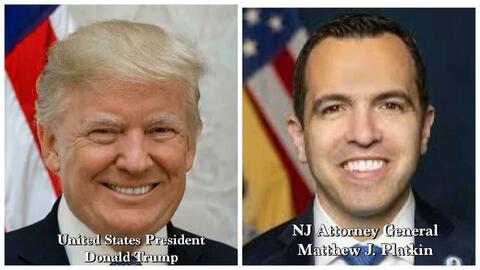By: Richard L. Smith
New Jersey Attorney General Matthew J. Platkin is leading a coalition of 20 states in two lawsuits challenging what they describe as unlawful efforts by the Trump Administration to withhold billions in federal funding unless states agree to assist in enforcing federal immigration laws.
According to information released by the New Jersey Attorney General’s Office, the lawsuits target the U.S. Department of Homeland Security (DHS), the Federal Emergency Management Agency (FEMA), and the U.S. Department of Transportation (DOT), citing new conditions that threaten vital funding for law enforcement, infrastructure, emergency services, and disaster response programs.

“These threats are not only reckless—they are unlawful,” said Attorney General Platkin. “The federal government is holding critical resources hostage and putting the safety of our communities at risk. New Jersey receives over $2 billion annually in funding for emergency preparedness, transportation, and public safety. Stripping that away over immigration policy disagreements is unacceptable.”
The first lawsuit, filed against DHS and FEMA, challenges directives that would cut emergency and counterterrorism funds to jurisdictions that do not assist with civil immigration enforcement.
The second lawsuit, against DOT, objects to similar requirements being tied to federal infrastructure grants for highways, railways, airports, and public transit.
Platkin argues the new conditions exceed the legal authority of both agencies and violate congressional intent. 
He also warned that the mandates would erode trust between immigrant communities and local law enforcement—making neighborhoods less safe.
The coalition of attorneys general includes representatives from California, New York, Illinois, Massachusetts, and 15 other states.
Together, they assert that federal agencies cannot use funding as leverage to coerce states into shifting local law enforcement priorities toward immigration enforcement.
The lawsuits seek to block the enforcement of the new conditions and protect billions in funding states rely on for essential public services.
